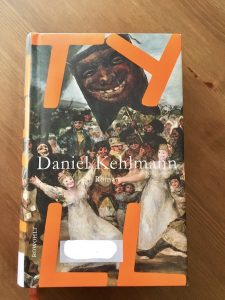“Great Lives” on BBC Radio 4 is a long favourite programme, though these days I often miss the scheduled broadcast and listen to it as a podcast. It doesn’t often disappoint, and this concerning Frank Ramsey was no exception.
Matthew Parris, the presenter, was momentarily taken aback with David Spiegelhalter’s nomination; admitting to not having heard of Ramsey. I wouldn’t like to be the one to raise my eyebrows, for only in recent times has this short, brilliant life come to my attention, but Parris has encountered an associated other, Ludwig Wittgenstein, in both his own academic life at Cambridge; as an insurmountable hurdle, he says, and amongst previous “great lives”. And, I would have thought, any investigation into Wittgenstein’s life would have somehow thrown up Ramsey.
Re-listening to that 2011 broadcast, Ramsey is indeed not mentioned, but I guess in thirty minutes only so much can be said. I am surprised though; for as I understand it, the young Ramsey, took some time out from a heady Viennese sojourn to act as an emissary of sorts (at the behest of Maynard Keynes amongst others), to visit Wittgenstein in the provinces of Austria in 1923; spent some time with him, gained his trust (not an easy thing!), translated the Tractatus into English, and eventually played an important role in finally enticing Wittgenstein back to Cambridge in 1929.
This is by no means meant to be derogatory of either “Great Lives” or Matthew Parris, in fact I enjoy the program very much, and along the way I have discovered an extraordinary gallery of people. Granted, some have, to my mind, been grotesque – like Mussolini (a minor scandal that selection was a few months ago!), and some trivial – confusing a life to be celebrated with that of celebrity. And, in this special edition, Parris does contemplate the very subjective nature of defining adequately what exactly a “great life” is.
But generally speaking, an enlightening interlude – whether on radio or as podcast on various platforms – that may be light on answers, but very often suggests questions.

